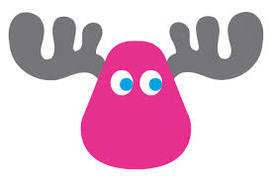Protein help! 1 gram/lb seems impossible!

commotionstrange
Posts: 73 Member
Hi All,
So everywhere I look, it says that people should be aiming to eat 1 gram of protein for every pound of their body weight. That means I should be eating approx. 150 grams of protein a day!!! This seems to come up more and more for people looking to lose the last 10-15 lbs (which I am).
I'm a vegetarian (I eat fish occasionally), and I'm careful to eat protein with almost every meal (beans, tofu, greek yogurt, eggs, fish, quinoa etc.), but I'm lucky if I can hit 80 grams in a day, and that's only on days when I have a high protein vegan shake for breakfast (approx. 30 grams of protein). Without the high protein shake (days where I generally have greek yogurt and high fiber cereal), I usually hover somewhere between 40-60 grams a day.
How in the world does someone eat 150 grams of protein in one day!!! Does that guideline even make sense for someone who doens't eat meat? What should I do?
Can anyone make any suggestions? Help from vegetarians AND non-vegetarians would be appreciated.
Thanks
So everywhere I look, it says that people should be aiming to eat 1 gram of protein for every pound of their body weight. That means I should be eating approx. 150 grams of protein a day!!! This seems to come up more and more for people looking to lose the last 10-15 lbs (which I am).
I'm a vegetarian (I eat fish occasionally), and I'm careful to eat protein with almost every meal (beans, tofu, greek yogurt, eggs, fish, quinoa etc.), but I'm lucky if I can hit 80 grams in a day, and that's only on days when I have a high protein vegan shake for breakfast (approx. 30 grams of protein). Without the high protein shake (days where I generally have greek yogurt and high fiber cereal), I usually hover somewhere between 40-60 grams a day.
How in the world does someone eat 150 grams of protein in one day!!! Does that guideline even make sense for someone who doens't eat meat? What should I do?
Can anyone make any suggestions? Help from vegetarians AND non-vegetarians would be appreciated.
Thanks
0
Replies
-
bump. I eat meat and I'm struggling with low protein. I'm anxious to know.0
-
it's called whey.0
-
I lost 30 pounds, have maintained the loss, and have never had to eat that much protein to do so. I understand people eat that much protein for their fitness requirements, but by no means do you *have* to eat that much protein in order to lose the last 10-15 pounds.0
-
Well vegetarian; cows ate grass, so inadvertently I am one too?0
-
bump
i have exact the same problem. i hardly ever go over 70g of protein even though i eat it with almost every meal0 -
People, just start eating fish ! Lots of protein and little calories. I measn ofcourse boiled/coocked/grilled fishes without frying it
 0
0 -
I think the distinction is 1gram per pound of Lean Body Mass....I have 144g of protein a day even though I weigh 268 because that's my lbm. I do drink a protein shake on days I lift, otherwise I wouldn't get enough.0
-
I always thought that it was 0.8 -1 gram per pound of *lean body mass,* not total body weight? Hopefully someone will correct me if I'm wrong.0
-
You simply don't need to, to be healthy.Hi All,
So everywhere I look, it says that people should be aiming to eat 1 gram of protein for every pound of their body weight. That means I should be eating approx. 150 grams of protein a day!!! This seems to come up more and more for people looking to lose the last 10-15 lbs (which I am).
I'm a vegetarian (I eat fish occasionally), and I'm careful to eat protein with almost every meal (beans, tofu, greek yogurt, eggs, fish, quinoa etc.), but I'm lucky if I can hit 80 grams in a day, and that's only on days when I have a high protein vegan shake for breakfast (approx. 30 grams of protein). Without the high protein shake (days where I generally have greek yogurt and high fiber cereal), I usually hover somewhere between 40-60 grams a day.
How in the world does someone eat 150 grams of protein in one day!!! Does that guideline even make sense for someone who doens't eat meat? What should I do?
Can anyone make any suggestions? Help from vegetarians AND non-vegetarians would be appreciated.
Thanks
Here are the suggested amounts for macronutrients from Health Canada:
http://www.hc-sc.gc.ca/fn-an/nutrition/reference/table/ref_macronutr_tbl-eng.php
Your range is about .8 grams/kg/day (kilogram)
Some people want more because they are trying to build lots of muscle. Hence the suggestion I hear on here is .8-1 gram per pound of lean body mass, not total weight.0 -
So everywhere I look, it says that people should be aiming to eat 1 gram of protein for every pound of their body weight. That means I should be eating approx. 150 grams of protein a day!!! This seems to come up more and more for people looking to lose the last 10-15 lbs (which I am).
It's usually 1 gram of protein for each pound of lean body mass, not total weight. So if you are 150 lbs you would need to get a good guesstimate of your body fat % and subtract those lbs, then eat that many grams of protein.0 -
beans (raw soybeans excluded) and nuts are pathetic sources of protein...
Here's how I eat 225-250g of protein every day without supplements.
PBJ (or 2) for breakfast, 4-6 oz of meat around 10 AM, 6-8 oz of meat for lunch, 4-6 oz. mid afternoon, 6-12 oz for dinner, and some dairy after dinner (yogurt/milk/ice cream).
I eat fish, chicken, pork, and beef mainly for my meats.0 -
I have such a hard time with protein too. I eat meat but not much and I can't have nuts at all, nor can I have dairy products (allergic to dairy NOT intolerant to lactose). Makes for an interesting challenge!!!0
-
Man these are some of the least helpful answers ever!! I do think the answers regarding lean body mass are correct. I'm also a vegetarian who eats fish and seafood occasionally. I am approx 126 lbs and try to eat between 80 and 100 grams of protein daily. The things that seem to help me are:
1. Eating either eggs or protein powder with breakfast (I use a rice protein that I like)
2. Eating cheese, cottage cheese, and greek yogurt for snacks.
If I have eggs for breakfast sometimes I'll have a protein shake as a snack. I eat regular lunches/dinners and don't worry about having a ****load of protein in those.0 -
As others posted above, a more common recommendation is 1 gram per pound of LEAN body mass (which requires you to have a pretty good idea of your body fat percentage). For me, that's about 180g of protein a day. I can't offer any help from a vegetarian point of view since the majority of mine comes from meat, but you can supplement with protein powder (whey if you allow dairy products in your diet - otherwise, there are several varieties of vegetarian/vegan protein powders).0
-
That seems a little high to me but yesterday I had 52, the day before was 96 and the day before that was in the 90's too. I think the grams for a person is supposedly 47 per day but I'm sure it's out there somewhere.0
-
Greek yoghurt, cottage cheese, and quark are amazing sources of protein and very few calories. I have lots but I don't bother too much if I don't reach my daily limit, I just do as much as I can. A good balance of fat, carbs and protein is good enough for me.0
-
I always thought that it was 0.8 -1 gram per pound of *lean body mass,* not total body weight? Hopefully someone will correct me if I'm wrong.
Yeah I'm with you on this, I'm 180lb and 17% BF so I need 150g of protein (83% of 180lb, then 1g per lb). Even so I was in the same place as you and struggling to get enough, I've added low fat greek yogurt, skimmed milk (glass of), tinned sardines, tuna which I assume you can do as a veggie? I've also added a few more egg whites (can you?) and both protein shakes and bars when I don't have time for real food. I started this in Monday and have managed my 150g roughly everyday since.0 -
its .8 per kg .. or .37 per lb apparently someone saw metric units and decided it was the same thing. You should be getting 10 to 35 % of your calories from lean protein0
-
it's called whey.
No whey! haha sorry just had to say that :P
But umm... chicken + veg, biltong (which is basically dried out beef steak cut into slices sorta like jerky, but none of that processed junk... just pure beef...)
Honestly 1g/lb isn't bad.. I am about 135lbs and today I've had about 189g of protein without issue maybe one shake... but that is all.. I just like the shakes taste, and I haven't even had dinner yet, so chances are my protein will be 200g+ by end today.. 0
maybe one shake... but that is all.. I just like the shakes taste, and I haven't even had dinner yet, so chances are my protein will be 200g+ by end today.. 0 -
Beans, greek yogurt, egg whites, protein powders, and my new favorite treat (or breakfast) is the Nature Valley Dark Chocolate Peanut Butter Protein Bar - it's a granola bar with whole peanuts in it and it has 10g of protein and tastes oh so good!0
-
So everywhere I look, it says that people should be aiming to eat 1 gram of protein for every pound of their body weight.
It is actually one gram of protein per one kilogram of body weight which equals out to be about 0.4 grams per pound. So, if you weigh 150 pounds, then your protein grams should be around 60 grams per day. So, you are on target.
As a general rule, between 10 percent and 15 percent of your total calories should come from protein according to the Weight Management Center at the University of Pittsburgh Medical Center0 -
Hmm...I was advised by my personal trainer that 1 gram per pound of LEAN body mass is good (AKA bones, muscle, organs but not fat). My lean body mass is 140lbs, so that's what I eat (can't imagine eating 1 gram/pound- that would be 200+g per day for me!). So perhaps get tested (I had a BodPod done) or try to calculate your lean mass and shoot for that?
I now hit 140 a day pretty much every day, unless I'm sick or something. Breakfast is usually either a fruit smoothie with vanilla protein powder and greek yogurt or iced coffee, milk and protein powder. That usually nets me close to 50g. Not vegetarian, so my lunches and dinners often include meat but their are other ways. Barilla makes a PLUS pasta that has 10 grams of protein per serving, quite a bit more than regular pasta. Pair that with some meatless balls for a pretty protein packed meal. Light string string cheese is really good; 50-60 calories per piece and usually about 8 grams of protein. There are increasingly available granola bars with protein. I've found bread with as many as 7 grams/slice (about 100 cals per slice), throw some 2% milk cheese slices on there for a grilled cheese and you've got 20-25 grams of protein depending on the bread and cheese. I do a lot of greek yogurt too. Cottage cheese is quite high in protein too-I mix one T of salad dressing in with some cottage cheese as a dressing for salads.0 -
Don't forget to count the protein in your dark leafy greens like spinach, kale, collard greens and even brocoli. I had thought the gram/pound was for serious body builders, not the average person. What's your end goal?0
-
So you don't think a link to an RDA chart for Health Canada is helpful? ok.Man these are some of the least helpful answers ever!! I do think the answers regarding lean body mass are correct. I'm also a vegetarian who eats fish and seafood occasionally. I am approx 126 lbs and try to eat between 80 and 100 grams of protein daily.0 -
I am a vegetarian - get my protein from whey shakes, tofu, dairy, beans, nuts, etc. There is protein in a lot of things...but I'm pretty sure even body builders do not aim to eat 1 gram of protein for every lb they way. That sounds difficult and over thinking things. There are so many other nutrients our bodies need besides protein. MFP has me aiming for 44 g of protein daily, and I come close but rarely hit it, unless I eat back some exercise calories. I weigh 187 lbs currently - no way I could eat that much protein, even if I ate meat.0
-
This is correct. It per lean body mass, not body weight.I always thought that it was 0.8 -1 gram per pound of *lean body mass,* not total body weight? Hopefully someone will correct me if I'm wrong.
Basically you have to find out how much of your body weight is actually lean body mass, everything else besides, fat, organs, bones etc....0 -
Have you ever considered adding more than one scoop to your shakes?
or maybe have a shake twice instead of once. not sure when you workout, but if you workout in the evening, do one in the morning and then again right after your workout. if you're an early morning person, do your shake in the am and then have another later in the day to replace a meal or an hr before bed.
see how if that helps.
you could always eat other foods containing protein like; peanut butter, edamme, hemp seeds, egg whites, tofu, other nuts (almonds brazillian nuts, walnuts, etc), Low fat yogurt and the list goes on.
try Isopure drinks, they have 40g of protein per bottle. may not taste the best, but hey...lol0 -
whey protein powder,soy protein powder, milk, lentils... i mean for vegetarians its harder to reach protein requirements but protein supplements are your best bet... and honestly you only need like .8g per lb of bodyweight its 1g to be on the safe side for primarily bodybuilders.0
-
Vegetarians that insist that you can get plenty of protein without meat annoy the !@#$ out of me. You are obviously not one of them which is why you made that post. The simple fact is that beans, tofu, quinoa, etc. are not good sources of protein unless you're a vegetarian. You know how many beans you would need to eat to match the protein in one piece of chicken? Neither do I, but I know it's alot. Protein shakes are really the only way for vegetarians to get anywhere close to their bodyweight in grams without going over your cals.0
-
its .8 per kg .. or .37 per lb apparently someone saw metric units and decided it was the same thing. You should be getting 10 to 35 % of your calories from lean protein
I think I read for weight loss something like 30 protein, 30 carb and 40 fat % is good.
However as I'm speed training at moment I'm aiming for 60% protein, 30% carb and 10% fat... Next year when add more distance to my week I'll lower protein down to maybe 40% and up carbs to 50%...0
This discussion has been closed.
Categories
- All Categories
- 1.4M Health, Wellness and Goals
- 398.2K Introduce Yourself
- 44.7K Getting Started
- 261K Health and Weight Loss
- 176.4K Food and Nutrition
- 47.7K Recipes
- 233K Fitness and Exercise
- 463 Sleep, Mindfulness and Overall Wellness
- 6.5K Goal: Maintaining Weight
- 8.7K Goal: Gaining Weight and Body Building
- 153.5K Motivation and Support
- 8.4K Challenges
- 1.4K Debate Club
- 96.5K Chit-Chat
- 2.6K Fun and Games
- 4.8K MyFitnessPal Information
- 13 News and Announcements
- 21 MyFitnessPal Academy
- 1.6K Feature Suggestions and Ideas
- 3.2K MyFitnessPal Tech Support Questions






















